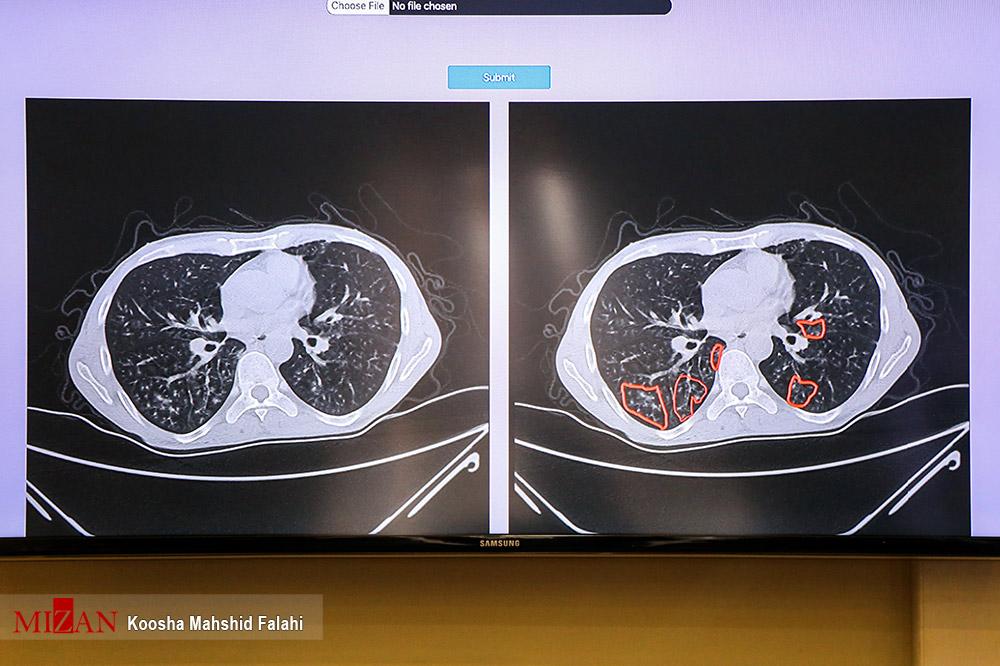That came in a ceremony attended by Sorena Sattari, the vice president for science and technology, and Alireza Zali, the head of the of the Tehran coronavirus headquarters.
Developed by a team of researchers at Sharif University of Technology for the first time in Iran, the system uses the artificial intelligence algorithm to take a CT scan of the chest.
The COVID-19 pneumonia diagnosis system is capable of detecting abnormalities which cannot be spotted in CT scan images in the early stages and can calculate the volume of the infected zone.
During the ceremony, Sattari described the unveiling of the apparatus as a good development in the domain of ecosystem technology and innovation.
“It has been two months that the country has been gripped by the disease (coronavirus), and we have been able to manage it well,” he said.
“All these good developments are the result of investments in the ecosystem,” he noted.
“As we made progress in the production of diagnosis kits, now, with this new technology, we developed a new method using artificial intelligence, a mehod which is even more precise than the kit in certain stages of the disease,” said Sattari.
“This another accomplishment coupled with innovative solutions offered by knowledge-based companies.
A prominent professor at Sharif University of Technology also weighed in on the achievement.
“At the moment, there are numerous methods in the world to diagnose the COVID-19 coronavirus disease, but what is proven and has been confirmed by the American Board of Radiology is that the best way to diagnose infection with the virus is to take a CT scan image of the chest,” said Hamidreza Rabiei, the head of the Advanced Information Technology and Communications Research Center of the Sharif University of Technology.
“Currently, there are two systems similar to this in the world: one in China and another at Stanford in the United States,” he said.
“On the back of efforts by young researchers in the country, we have been able to design and launch this system in order to diagnose COVID-19,” he noted.

Rabiei, who is in charge of the newly developed system, said the system is highly accurate.
“The systems which exist in the world are susceptible to error, and what we did with the team of researchers was that we designed a system which is among the top ones in terms of accuracy,” he said.
“This system has been designed with 97% accuracy and will be made available to hospitals and medical centres via the Internet by next week,” he noted.
